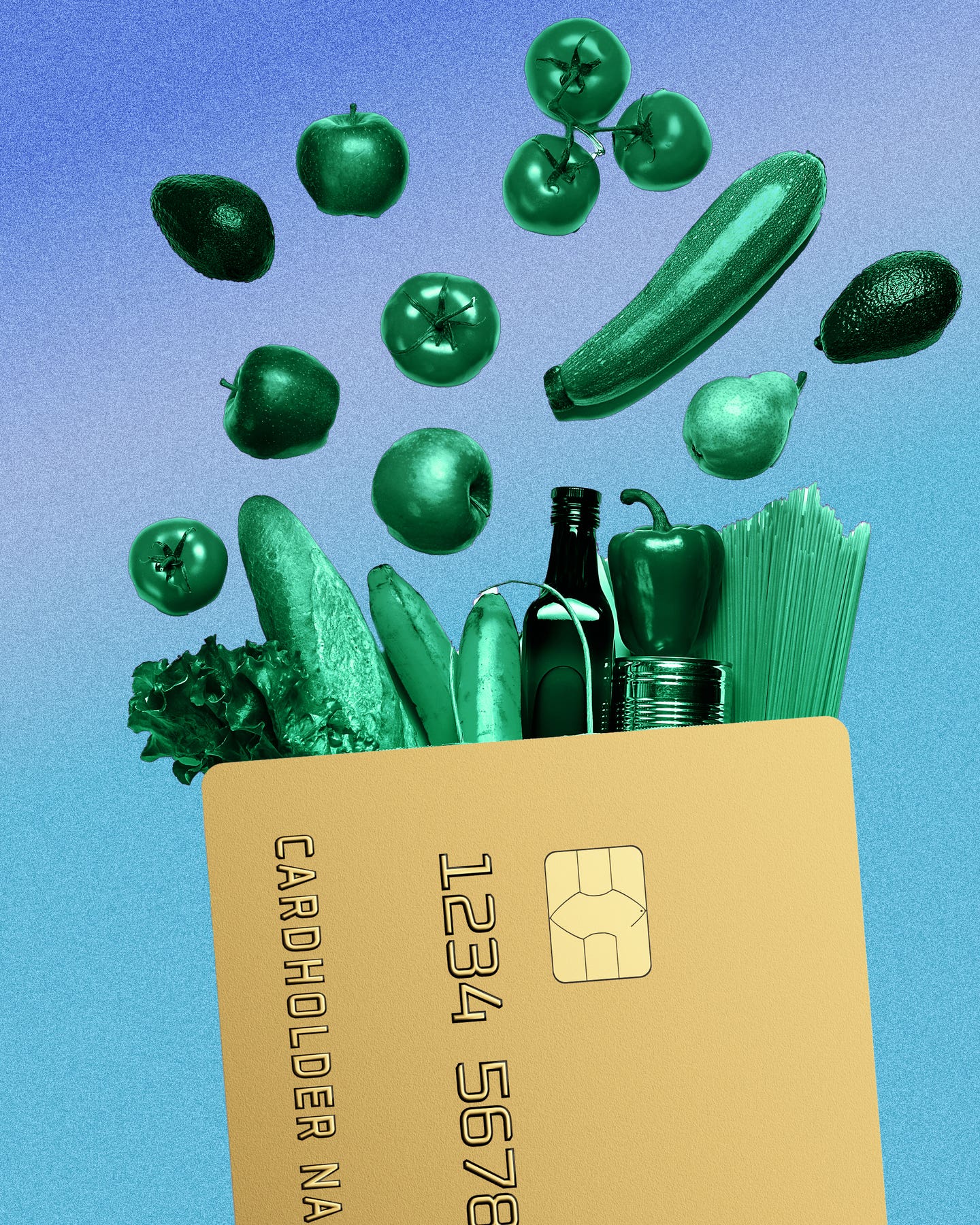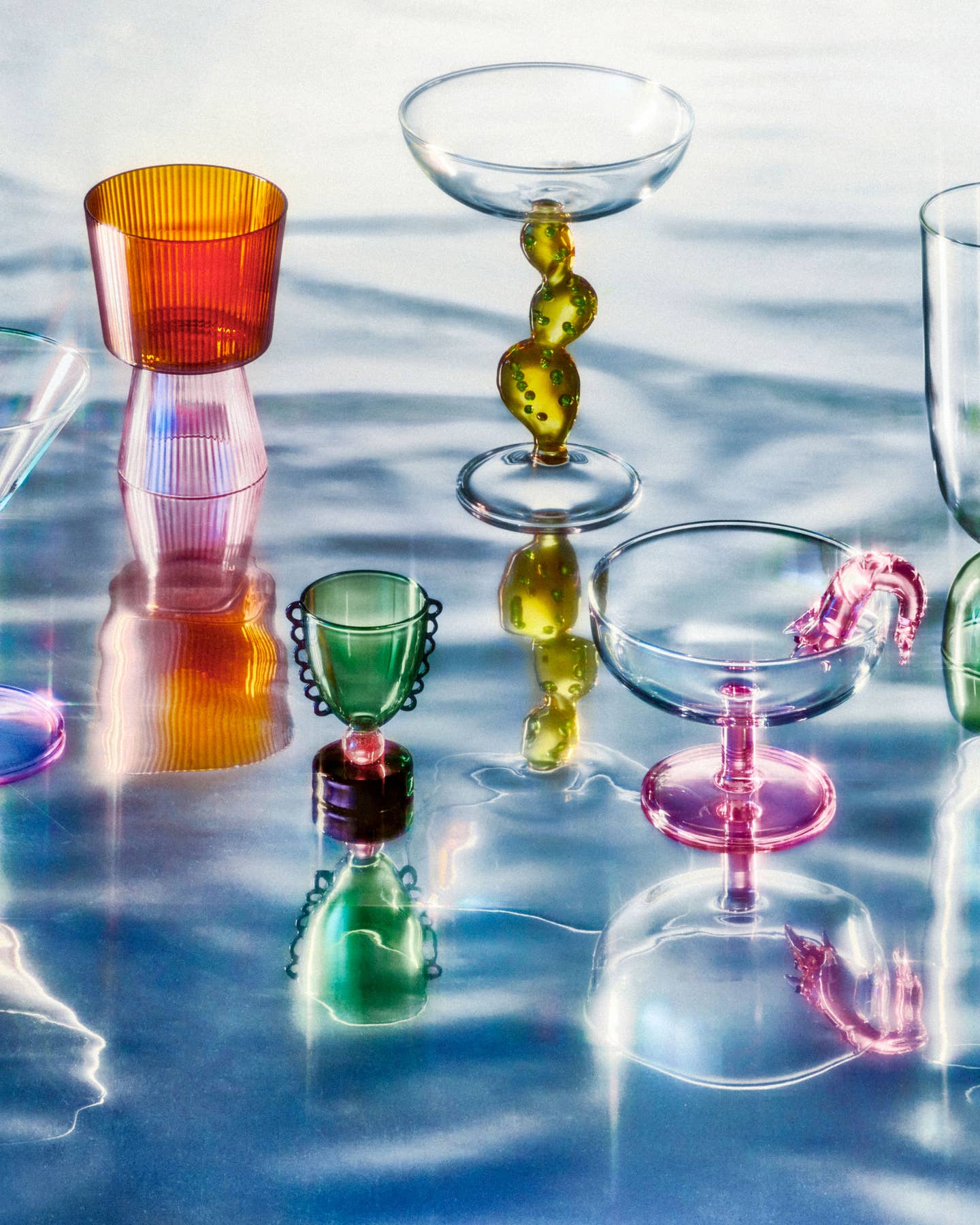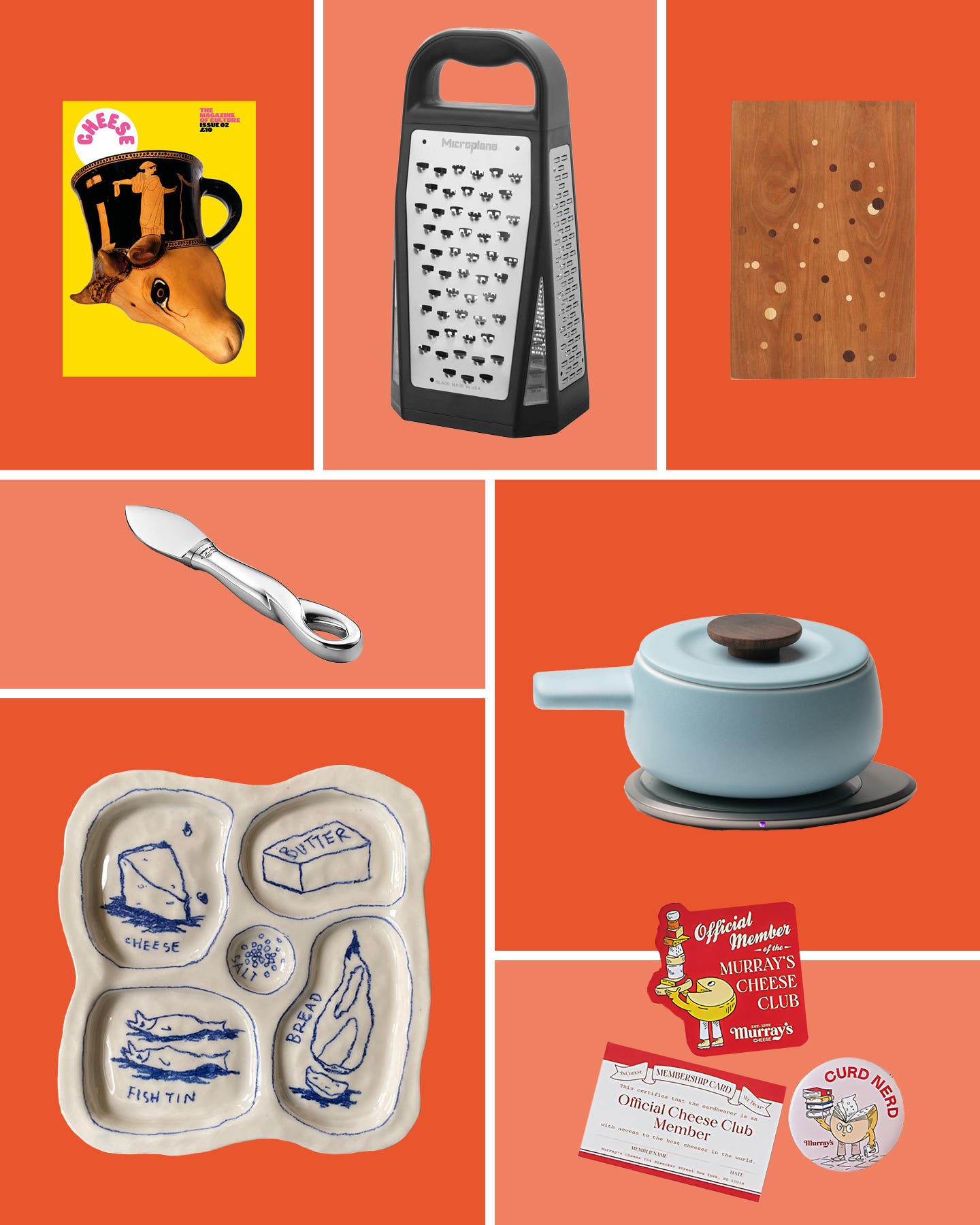A Definitive Guide to the Best Wine Glasses, Based on Your Go-To Varietal
The only stemware you’ll ever need.

Whether you know your way around a cellar or are just getting to know the difference between a vermentino and a verdelho, the drinking experience can be as serious or as casual as you want it to be—there are technically no rules that dictate what you like to drink and how you should enjoy it. There are, however, many different guidelines for optimizing taste and aroma, and that’s where great stemware comes in.
Studies have shown that the shape of a glass can significantly influence the movement and concentration of ethanol vapors, ultimately affecting a wine or spirit’s flavors and aromas. This is exactly what makes certain glasses better suited to certain wines than others, which is the idea behind varietal-specific, category-specific, and many all-purpose wine glasses. Of course, stemware shopping can be overwhelming, so we’ve broken it down to the best of the basics. Read on for our essential wine glass picks of the year.
- Best Overall: Gabriel-Glas Gold Edition “One for All” Universal Wine Glass
- Best for Light-Bodied Reds: Schott Zwiesel Pure Light-Bodied Red Wine Glass
- Best for Full-Bodied Reds: Zalto Denk'Art Bordeaux Glass
- Best for Light-Bodied Whites: Riedel Vinum Sauvignon Blanc/Dessert Wine Glass
- Best for Full-Bodied Whites: Nude Stem Zero Full-Bodied White Wine Glass
- Best for Sparkling Wines: LSA International Borough Bar Champagne Glasses
- Best Stemless: The Jancis Robinson Collection The Perfect Wine Glass
Features to Keep in Mind When Shopping for Wine Glasses
Varietals
Most oenophiles don’t need to go all-out with every varietal-specific wine glass on the market—in fact, casual drinkers can cover a lot of ground with a high-quality all-purpose option, and if you do want to specifically cover a few core varietals (e.g. Bordeaux, Cabernet, Burgundy, Chardonnay, Riesling, et al), then you can go for glasses designed to accompany either the exact varietal or the general category it falls into, such as light-bodied reds and full-bodied whites.
Size and Shape
In general, fuller-bodied red wines are more tannic, and wines in this category call for a larger bowl and a wider opening to give the wine more surface area to open up (this describes a classic large Bordeaux glass). Burgundy glasses feature a large bowl with a narrowed opening so as to keep delicate aromas inside the glass; red wines in between these two categories (such as Syrah or Malbec) work well in “standard” red wine glasses (i.e. unspecified red wine glasses) as well as high-quality all-purpose glasses. The same approaches can be applied to white wines when it comes to body and aroma, though tannins are not a concern in white wines.
Materials
Crystal is always a sound choice when shopping for the perfect wine glasses. Unlike regular glass, it is possible to produce an extremely thin vessel out of crystal that still offers some level of durability. When talking about wine glasses, the thinner the lip, the better the experience (this is also usually an indicator of high quality, as is the clarity of the glass—sommeliers gravitate toward high-end brands like Zalto for these reasons).
Our Top Picks
Best Overall
The Gabriel-Glas Gold Edition is an incredibly thin, mouth-blown wine glass designed to work well with a number of different wine styles, thanks to its broader base, which provides more surface area, and gently sloped walls with a narrowed opening to encourage decantation and aroma preservation, respectively. These featherweight glasses might feel extremely delicate, but cleaning them in the dishwasher is recommended (they’re less likely to break this way).
Best for Light-Bodied Reds: Schott Zwiesel Pure Light-Bodied Red Wine Glass
Best for Light-Bodied Reds
Schott Zweisel is a legacy name in glassware, and these wine glasses are relatively affordable for the level of quality. The Pure collection is made from patented Tritan lead-free crystal that is resistant to scratches, chipping, and breakage, and this material does a great job of maintaining its clarity over time. The broad base and angled chimney make Schott Zwiesel’s Pure light-bodied red wine glasses perfect for red wines like Burgundy, Gamay, and Pinot Noir, for example. This is also an opportunity for crossover with fuller-bodied and aromatic white wines, if you’re looking to save money or space (or both).
Best for Full-Bodied Reds: Zalto Denk'Art Bordeaux Glass
Best for Full-Bodied Reds
Beloved by sommeliers across the world for their thinness, brilliance, and design, Zalto wine glasses are the ultimate high-quality vessels for any and all wine varietals and categories. The Bordeaux glass is a classic shape and size with a broad bowl and broad mouth designed to soften tannins and bring out the character within fuller-bodied reds. Use these glasses for wines like Bordeaux, Cabernet Sauvignon, Merlot, and the like; you can confidently clean these glasses in the dishwasher despite their delicate feel.
Best for Light-Bodied Whites: Riedel Vinum Sauvignon Blanc/Dessert Wine Glass
Best for Light-Bodied Whites
Light-bodied white wines like Sauvignon Blanc, Semillon, and Chenin Blanc thrive in Riedel’s Vinum Sauvignon Blanc glasses, which are also great for dessert wines (think Ports and sherries), ticking several boxes at once. These glasses are machine made and dishwasher safe.
Best for Full-Bodied Whites: Nude Stem Zero Full-Bodied White Wine Glass
Best for Full-Bodied Whites
Turkish glassware brand Nude is another favorite of industry professionals across the world for its smart designs and wide variety of styles. The Stem Zero collection is both ultra-lightweight and shockingly durable; these glasses are handmade from lead-free crystal and do an excellent job of showcasing complex, full-bodied white wines thanks to a wide bowl (which allows the wine to breathe) and wide rim, designed to encourage freshness and tanginess for optimal balance.
Best for Sparkling Wines: LSA International Borough Bar Champagne Glasses
Best for Sparkling Wines
Contrary to popular belief, Champagnes and other sparkling wines are best consumed in a few distinct glass shapes, none of which are flutes. LSA International’s dishwasher-safe Borough Bar collection offers a variety of glass styles at an affordable price point, and the Champagne option is elegantly sloped in a slightly exaggerated tulip shape, which creates an ideal environment for the bubbles and aromas of a variety of sparkling wines.
Best Stemless: The Jancis Robinson Collection The Perfect Wine Glass

Best Stemless
The name says it all—designed in collaboration with widely-respected wine critic Jancis Robinson, The Perfect Wine Glasses are just that. Robinson’s stemless wine glass features a bowl that is “widest right at the 5-ounce mark and tapered just right for optimal aromatics and aeration.” Essentially, these are higher-end all-purpose stemless wine glasses that are conducive to swirling (unlike many other stemless wine glasses) and that feel and look absolutely stunning.
Ask the Experts
What wine glasses do top restaurants use?
Depending on the restaurant and its service level, the quality of the stemware will differ—for reference, higher-quality wine glasses tend to be quite delicate and fine, while more approachable wine glasses will usually be heavier and thicker. In general, thin glasses with good clarity are most ideal for the wine drinking experience.
Why are crystal wine glasses better than glass ones?
Crystal, whether lead-free or not, makes it possible to produce wine glasses that are razor-thin yet still durable. Lead-free is usually ideal when it comes to drinkware, but lead is only really of significant concern for vessels designed to hold liquids for extended periods of time, such as spirits decanters, as the lead can leach into the liquid after prolonged contact.
Does the shape of a glass influence the taste?
The silhouette of a wine glass is certainly among the numerous factors that can influence a wine’s aroma and flavor characteristics. Again, the shape of the glass primarily affects the concentration and movement of a wine or spirit’s vapors, resulting in detectable changes on the nose and palate.
Keep Reading
Continue to Next Story
















